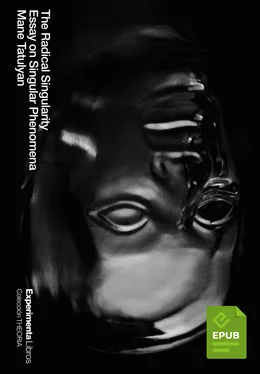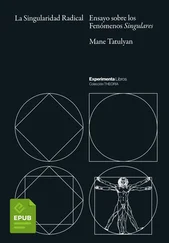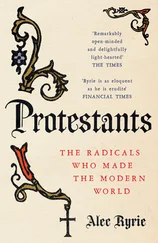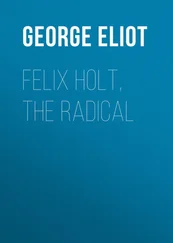The Radical Singularity
The Radical SingularityEssay on Singular Phenomena
Mane Tatulyan
Índice de contenido
Portadilla The Radical Singularity Essay on Singular Phenomena Mane Tatulyan
Legales THE RADICAL SINGULARITY Essay on singular phenomena Mane Tatulyan © 2021 Mane Tatulyan © 2021 Experimenta Editorial Investigación St., 7, Pol. Ind. Los Olivos. 28906 Getafe, Madrid, Spain www.experimenta.es Editorial direction: Marcelo Ghio Design: Mane Tatulyan Edition: Jed Eix Cover photography: Tara Winstead All rights reserved. No part of this publication may be reproduced, stored in a retrieval system, or transmitted, in any form or by any means, electronic, mechanical photocopying, recording or otherwise without the prior permission of the owners of the copyright. Visit CEDRO (Spanish Center for Reproductive Rights, http://www.cedro.org) if you need to photocopy, scan or reproduce any fragment of this work. Version 1.0 Digital edition by Proyecto451 Ebook ISBN: 978-84-18049-77-4
The Weight of Emptiness or the Autopsy of Modernity
The Epidemic of Liberation
The Atomic and the Anatomical
Humanity in Vitro
The Viral
The Big Bang or Big Data
The Corpse of Art
The Posthuman or the Postmortem
The Singularity
THE RADICAL SINGULARITY
Essay on singular phenomena
Mane Tatulyan
© 2021 Mane Tatulyan
© 2021
Experimenta Editorial
Investigación St., 7,
Pol. Ind. Los Olivos.
28906 Getafe, Madrid, Spain
www.experimenta.es
Editorial direction: Marcelo Ghio
Design: Mane Tatulyan
Edition: Jed Eix
Cover photography: Tara Winstead
All rights reserved. No part of this publication may be reproduced, stored in a retrieval system, or transmitted, in any form or by any means, electronic, mechanical photocopying, recording or otherwise without the prior permission of the owners of the copyright. Visit CEDRO (Spanish Center for Reproductive Rights, http://www.cedro.org) if you need to photocopy, scan or reproduce any fragment of this work.
Version 1.0
Digital edition by Proyecto451
Ebook ISBN: 978-84-18049-77-4
This book is dedicated to Descartes, to Rousseau, to Kant, to Hegel, to all those who believed in the revolutionary power of Reason and especially to the world: my work will be complete knowing that, in some corner of the world, there is someone for whom this book was a spark of optimism.
The Weight of Emptiness or the Autopsy of Modernity
Time was when man had a heaven, decked and fitted out with endless wealth of thoughts and pictures. The significance of all that is, lay in the thread of light by which it was attached to heaven; instead of dwelling in the present as it is here and now, the eye glanced away over the present to the Divine, away, so to say, to a present that lies beyond. The mind’s gaze had to be directed under the compulsion to what is earthly, and kept fixed there; and it has needed a long time to introduce that clearness, which only celestial realities had, and to make attention to the immediate present as such, which was called Experience, of interest and of value. Now we have apparently the need for the opposite of all this; man’s mind and interest are so deeply rooted in the early that we require a like power to have them raised above that level. His spirit shows such poverty of nature that it seems to long for the mere pitiful feeling of the divine in the abstract, and to get refreshment from that, like a wanderer in the desert craving for the merest mouthful of water. By the little which can thus satisfy the needs of the human spirit we can measure the extent of its loss.
G. W. F. Hegel, The Phenomenology of Spirit
The noise of the media is the symphony of the époque. The baroque of information, our proliferate and viral art. The global agenda, our civic and ideological architecture. After the burial of the humane, capitalist production and digital folklore created a new civilisation. These new humans seem to have reached infinity, shot from Earth beyond Mars, into the sidereal cyberspace of information. At least total equality (or homogenisation) was achieved since there is no longer any distinction between the real and the virtual, the natural and the artificial, or the human and the machine. This is life in the information biosphere of the Global Village. In addition, we are all eco and above all friendly, and in return, the liturgy of the organic liberates the conscience (fat-free, sugar-free, GMO-free, gluten-free, CO2-free) and the digital network, the body: every time more light and more docile, like life or emptiness.
Long time ago, we invented the sky. The earth was not enough to calm earthly uncertainties nor to confirm immortality. The space was too vast to be empty, to have been created out of nothing. We flood it with myths, stories, desires. To fill the vastness of the cosmos, we created an idea vaster than the Universe itself. We called it God. It was only a matter of time before what was once empty became an axiom, a kingdom, a weight . There is no simultaneous place for God and Men. God is already dead (like History or the Enlightenment). He is not even frozen (like Walt Disney) to be potentially resurrected in the future. And death (or oblivion) is not fatal because it is the end of things but because it is the beginning of emptiness.
The human being dies so that God is born. Then God has to die so that the subject is born. Then the subject dies, and we are left with only an objective and realised world.
It is said that we live in a period called Postmodernity (which we are not even able to define). Postmodern delusion is loss hysteria. God is dead. Marx is dead. The human being is dead. Economics is dead. And only the chaos of appearances remains (Sokal and Bricmont). Neither Modernity nor its «solids» could survive this fatality, this delusional reproduction towards infinity accomplished by forgetting the meaning (or the narrative). Even more than a post-Modernity, we should call this period anti -Modernity since it is the historical antithesis of the modern Idea. Modernity, freed from its Idea, turned progress into progressivism, equality into egalitarianism, liberty into liberation, Reason into artificial intelligence, the human being into information, humanism into transhumanism, and so on to infinity. The paradox is that things are destroyed both by their disappearance and by their excess. Any previous antithesis are forms of the surplus, of the cancerous, of what abandons its roots (already dead) and grows above its original reason. With Gehlen’s formula, «the premises of the Enlightenment are dead, only its consequences continue on». In The Philosophical Discourse of Modernity, Habermas tells us that, «as soon as the internal links between the concept of Modernity and the self-understanding of Modernity gained from the horizon of Western reason have been dissolved, we can relativise, as it were, the automatically continuing processes of modernisation from the distanced standpoint of a postmodernist observer. From this perspective, a self-sufficiently advancing modernisation of society has separated itself from the impulses of a cultural modernity that has seemingly become obsolete in the meantime; it only carries out the functional laws of economy and state, technology and science, which are supposed to have amalgamated into a system that cannot be influenced» (1). «From his point of view – Habermas continues – the modernisation of society, cannot survive the end of the cultural from which it arose. It cannot hold its own against the primordial anarchism under whose sign Postmodernity marches» (2). At the end of the French Revolution and the Enlightenment, Hegel already sensed that our age is a «golden sunrise», traversing «the last stage of history». The end of history has been discussed about ad nauseam. However, it is worth asking, can we reach the end of what has already been lost?
Читать дальше












